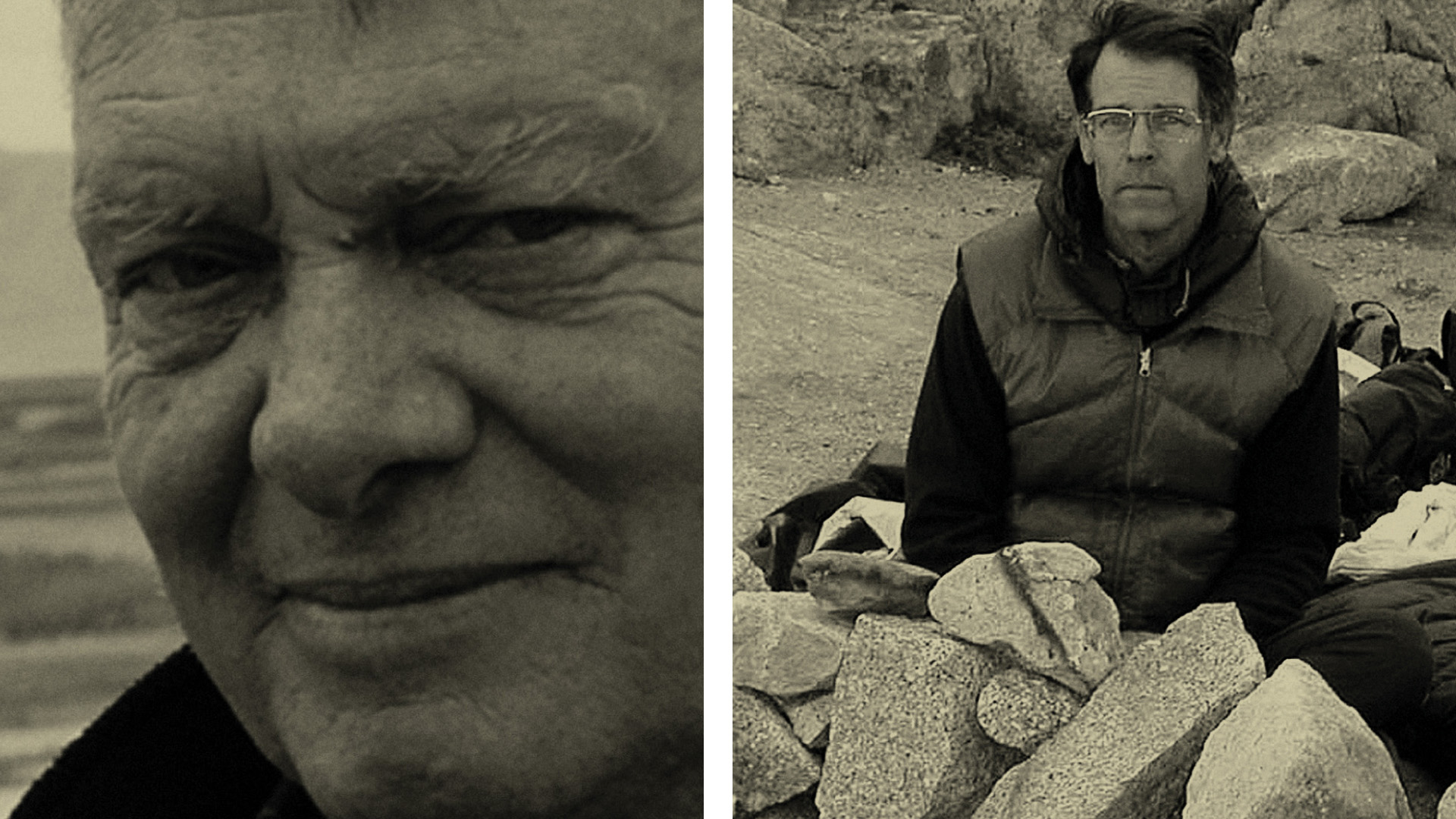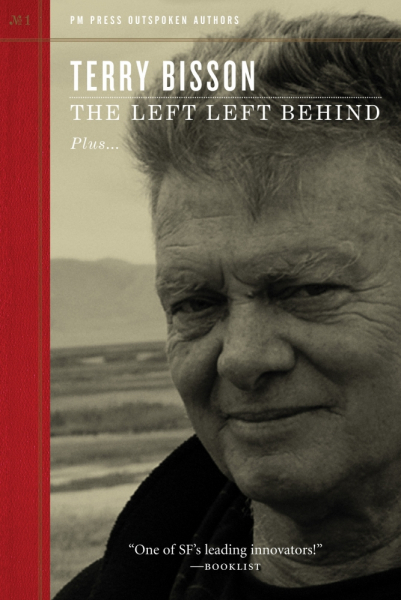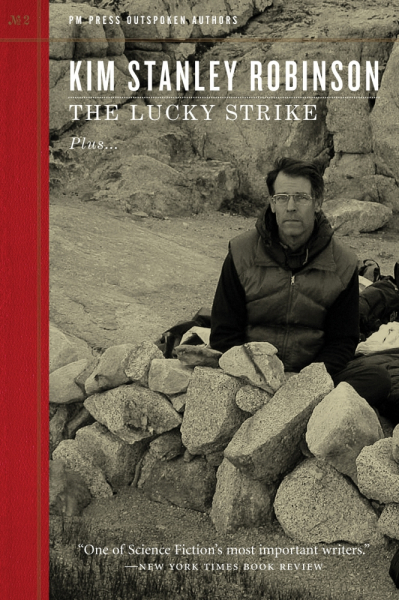By Gary K. Wolfe
Locus
April 2010
PM Press is a small, radical Oakland publisher which seems to be striving for a vaguely samizdat ambience and whose mission statement is so idealistic it almost sounds nostalgic (“We seek to create radical and stimulating fiction and nonfiction, books, pamphlets, t-shirts, visual and audio materials…We aim to distribute these through every available channel,” etc.). In recent months they’ve begun a series of short books highlighting “Outspoken Authors”, often featuring one or two stories plus an interview, and among the first authors featured are Terry Bisson and Kim Stanley Robinson. SF has always had its share of committed leftists, but — as with talk radio and TV — the most visible ideologues in the genre have tended to be Libertarians or conservatives (or in some cases, advocates of bizarre political philosophies of their own making). Bisson and Robinson, though, have never hesitated to make their positions clear, and it would be hard to think of two better choices among living SF writers for this series. Bisson is the more aggressively anarchic and broadly satirical of the two, and it’s likely the story and short play in his The Left Left Behind are less familiar to SF readers than Robinson’s selections (“The Lucky Strike” and “A Sensitive Dependence on Initial Conditions”). Bisson leads off with a sharp parody of the “Left Behind” series of fundamentalist apocalypses, showing how — tribulations notwithstanding — the world is actually better off after the believers get sucked out of their plane seats (neatly folded clothes left behind). The style of the piece is so bluntly simplistic — tiny chapters with headings like “Moments Later” or “Suddenly” — that it takes a few beats to realize he’s parodying LaHaye and Jenkins, who he seems to have actually read (I haven’t, which is why it took me a bit to catch on). The second piece is a play called Special Relativity, in which Einstein, Paul Robeson, and J. Edgar Hoover somehow get resurrected during preparations for an anti-Bush rally and are stunned to learn what the world has become. As funny as both these pieces are, it’s not all comfort food for liberals; in both pieces, for example, Bisson includes Israeli militarism among his targets.
Back to Terry Bisson’s Author Page
Robinson’s “The Lucky Strike” and its semi-nonfiction companion piece “A Sensitive Dependence on Initial Conditions” are more widely familiar, with “The Lucky Strike” having achieved near-classic status among alternate-history fictions and “A Sensitive Dependence” remaining one of the most incisive and provocative discussion of what alternative history is good for in elucidating our understanding of historical processes. The lynchpin event (or “divergence point,” in Connie Willis’s term) of “The Lucky Strike”, and the central hypothetical example of “A Sensitive Dependence”, is an aircraft welder whose faulty weld on a B·29 causes the plane that was to be the Enola Gay to crash, killing Paul Tibbets and the crew and resulting in the Hiroshima mission being given to a crew that includes Frank January, who in turn decides to delay releasing the bomb, causing it to explode away from the city itself and radically affecting the next few decades of history. It’s still a compelling story, but so widely available that the chief attraction of the book is likely the interview that takes up nearly a third of the volume and includes some provocative points, such as a ringing defense of what Robinson sees as the badly misnamed infodump (Bisson’s interview is quite a bit shorter, and seems to be conducted by someone not deeply familiar with his work, though it does add usefully to our understanding of his political background and brief imprisonment.) Both compact and attractive volumes also include bibliographies which seem to be reasonably complete.
Back to Kim Stanley Robinson’s Page








